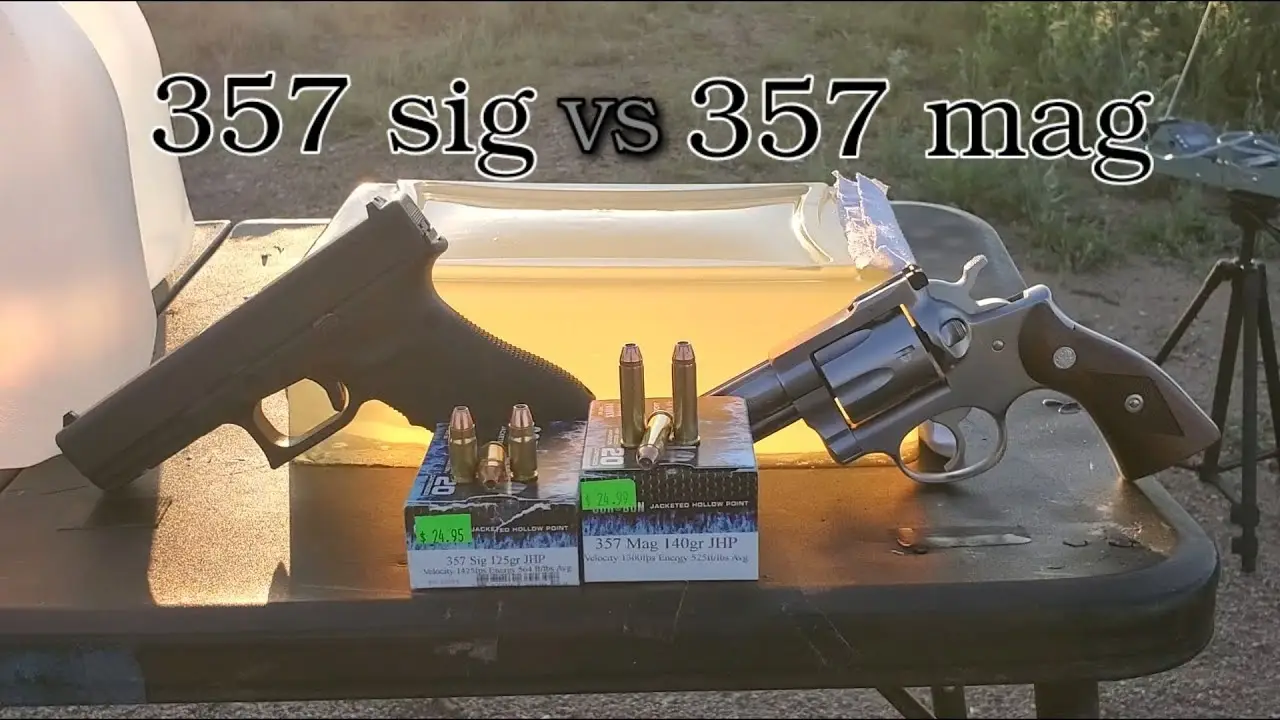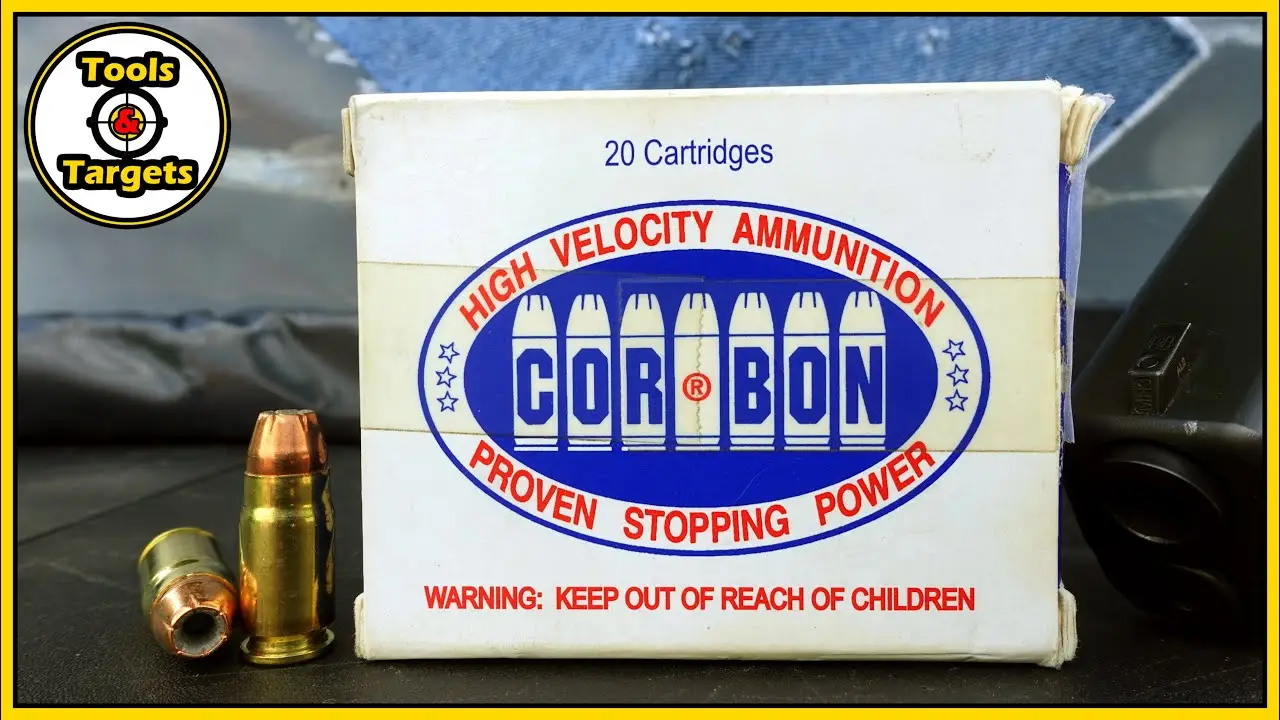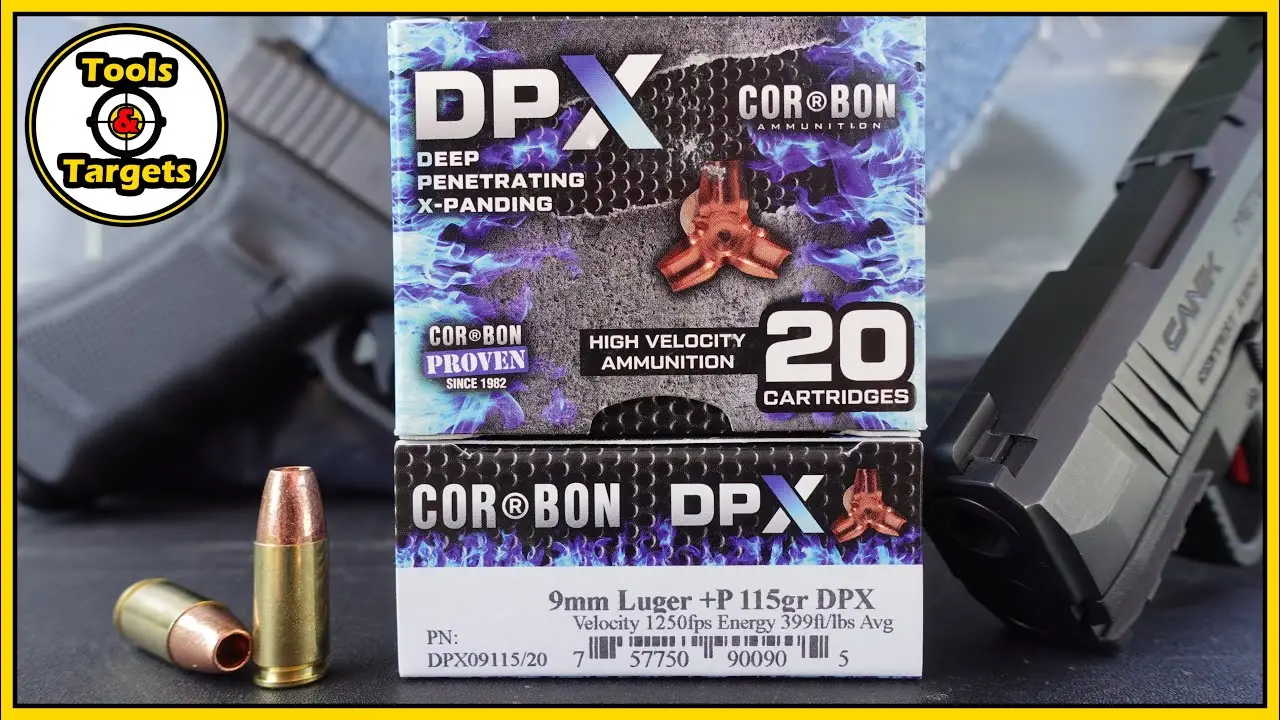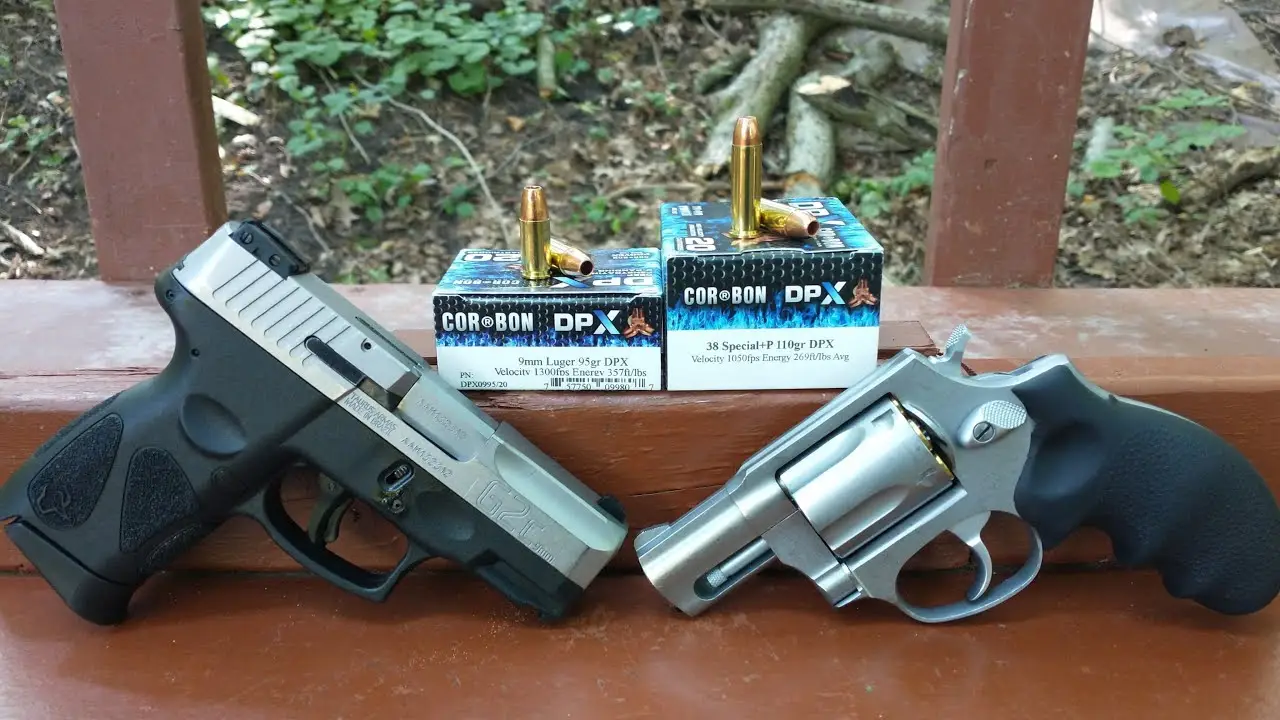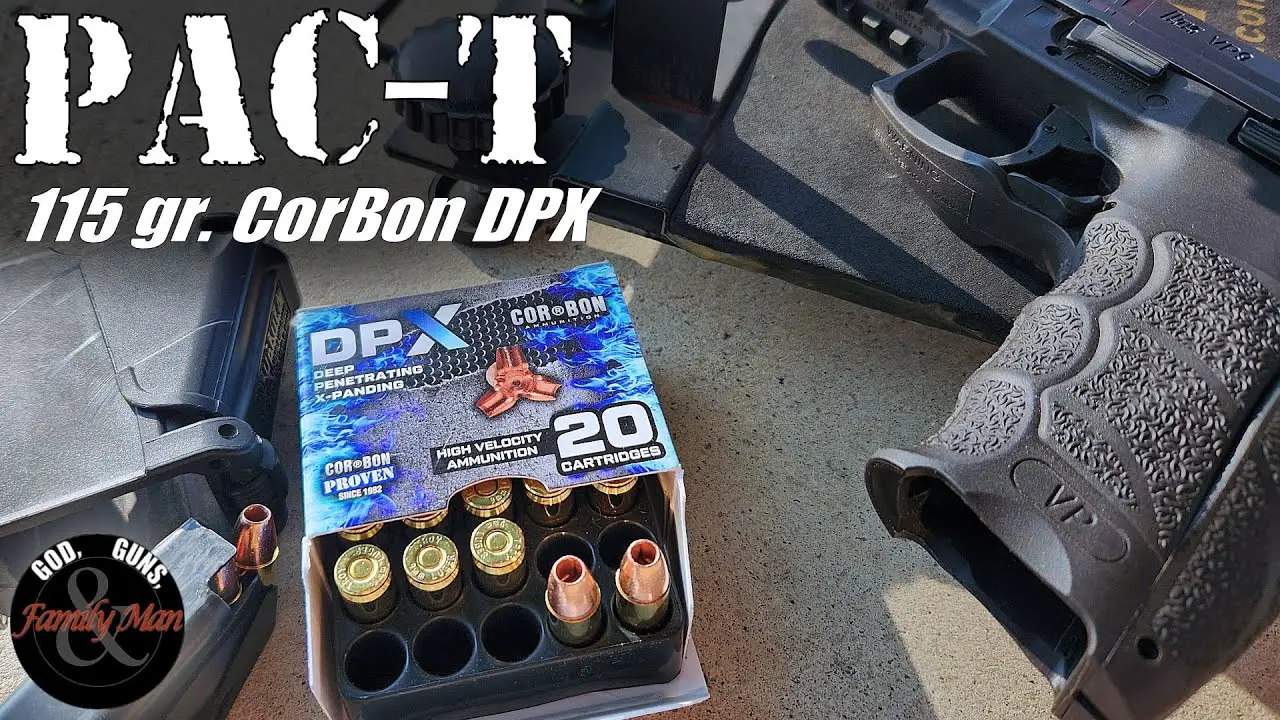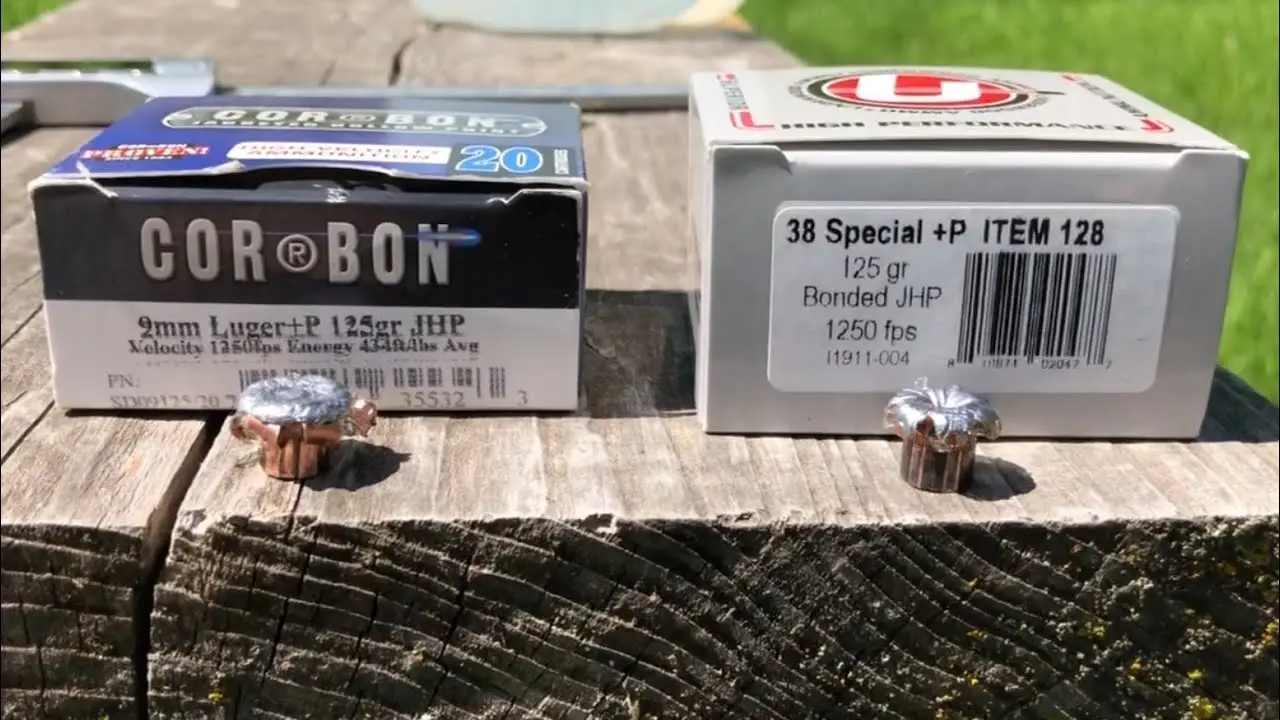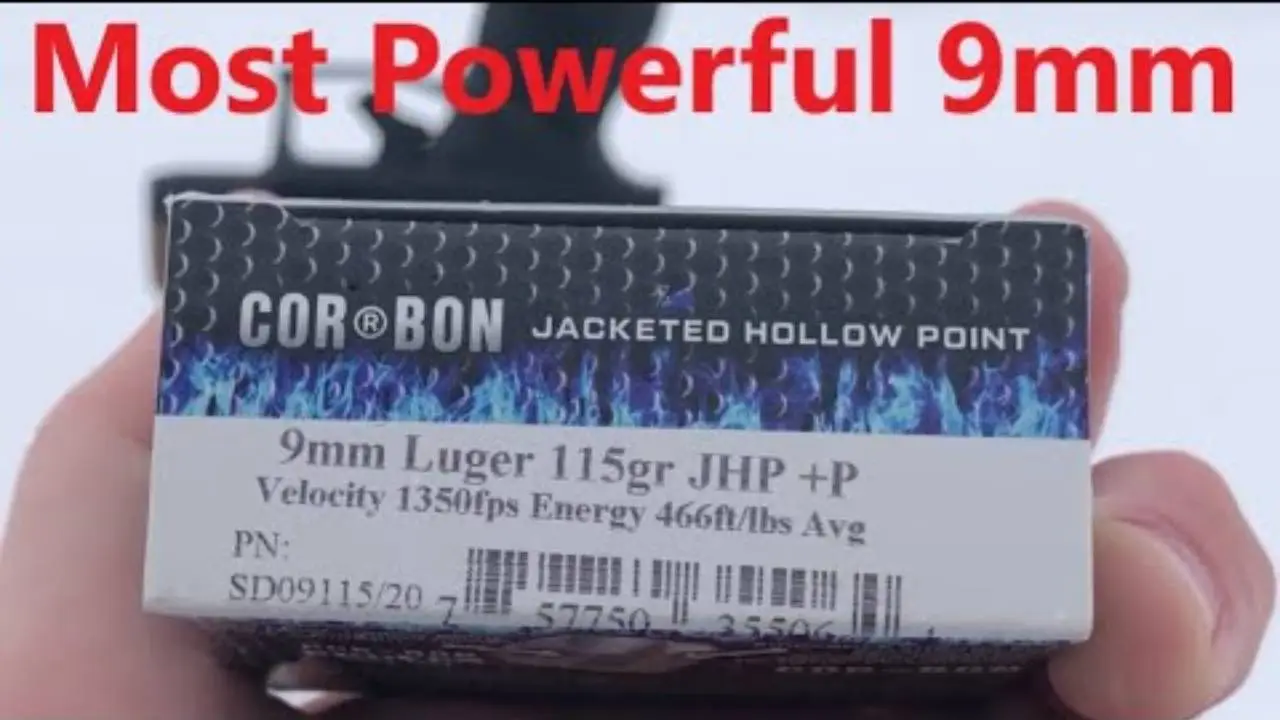Introduction — Why this test mattered
When defensive ammo gets mislabeled, trust takes a hit. After Cor-Bon corrected a packaging error and sent the intended 125-grain +P rounds, I returned to the range to run a proper ballistic gel retest. This test looks at velocity across barrel lengths, real-world clothing barriers, terminal performance in clear gel, and recovered bullet condition — the metrics that matter most for self-defense ammo.
Test setup & methodology
Ammunition: Cor-Bon 9mm 125-grain +P Jacketed Hollow Point (JHP)
Advertised velocity: 1,250 ft/s
Test guns:
-
Canik Mete MC9 — 3.1″ barrel (short-barrel test)
-
Glock 17 — 4.5″ barrel (full-length test)
Barrier: 1 layer denim + 1 layer fleece + 2 layers cotton T-shirt
Media: Two blocks of clear ballistic gelatin
Chronograph: LabRadar (muzzle, 3, 10, 15, 25, 50 yds)
Velocity — barrel length matters
Canik Mete MC9 (3.1″)
-
5-shot average: 1,190 ft/s
-
Extreme spread: 22 | SD: 9.0
Glock 17 (4.5″)
-
5-shot average: 1,267 ft/s
-
Extreme spread: 5 | SD: 2.0
Shorter barrels lost about 77 ft/s compared to the full-length Glock — a reminder that advertised velocities are typically measured from longer test barrels. Still, the MC9’s numbers are excellent for a 3.1″ micro-compact.
Ballistic gel results — penetration vs. expansion
Canik MC9 (short barrel)
-
Penetration: 24.0 in
-
Expansion: 0.451″–0.458″
-
Retained weight: 125.0 gr
Glock 17 (full barrel)
-
Penetration: 19.75 in
-
Expansion: 0.482″–0.495″
-
Retained weight: 124.5 gr
The short-barrel test produced deeper penetration but slightly less expansion, consistent with its lower velocity. The full-size barrel offered more aggressive expansion with a slightly shorter penetration depth — a desirable tradeoff for many defensive scenarios.
Recovered bullet condition
-
Weight retention: ~100% for both tests (excellent)
-
Jacket integrity: No jacket separation or fragmentation observed
-
Deformation: Glock round showed more jacket folding and larger final diameter — consistent with its higher velocity
This load demonstrated controlled, reliable expansion and excellent structural integrity — both signs of a well-engineered defensive projectile.
Performance summary (quick table)
| Test Gun | Velocity (avg) | Penetration | Expansion | Retained Weight |
|---|---|---|---|---|
| Canik MC9 (3.1″) | 1,190 ft/s | 24.0 in | 0.451–0.458″ | 125.0 gr |
| Glock 17 (4.5″) | 1,267 ft/s | 19.75 in | 0.482–0.495″ | 124.5 gr |
Analysis — what this means for shooters
-
Barrier performance: Passed heavy clothing with reliable expansion — good for everyday carry where clothing layers are common.
-
Penetration: Both results fall within acceptable ranges for barrier-capable defensive ammunition; the MC9’s deeper penetration (24″) is high but still appropriate for serious barrier scenarios.
-
Consistency & reliability: Tight SD and low extreme spread (especially from the G17) indicate repeatable performance — critical in defensive loads.
-
Not flashy, but effective: Expansion is moderate rather than dramatic; the design favors reliable penetration and weight retention over massive mushrooming.
Final verdict
Cor-Bon’s 9mm 125-grain +P is a strong offering for shooters who prioritize dependable penetration and structural integrity through barriers. After the earlier packaging mistake, this retest shows Cor-Bon delivered a solid, usable defensive load — not the loudest expansion on paper, but consistent, fast, and reliable where it counts.
Practical recommendations
-
Choose based on platform: Expect about a 75–80 ft/s advantage with full-size barrels; performance will shift accordingly.
-
Know your needs: If you prioritize slightly greater expansion and are shooting from a full-size pistol, the Glock-style performance above is ideal. For micro-compact carry, the MC9 showed more penetration and still respectable expansion.
-
Always test: Velocity and terminal performance vary by gun — test in your specific platform if possible.

John Doe
Lorem ipsum dolor sit amet consectetur adipiscing elit dolor


